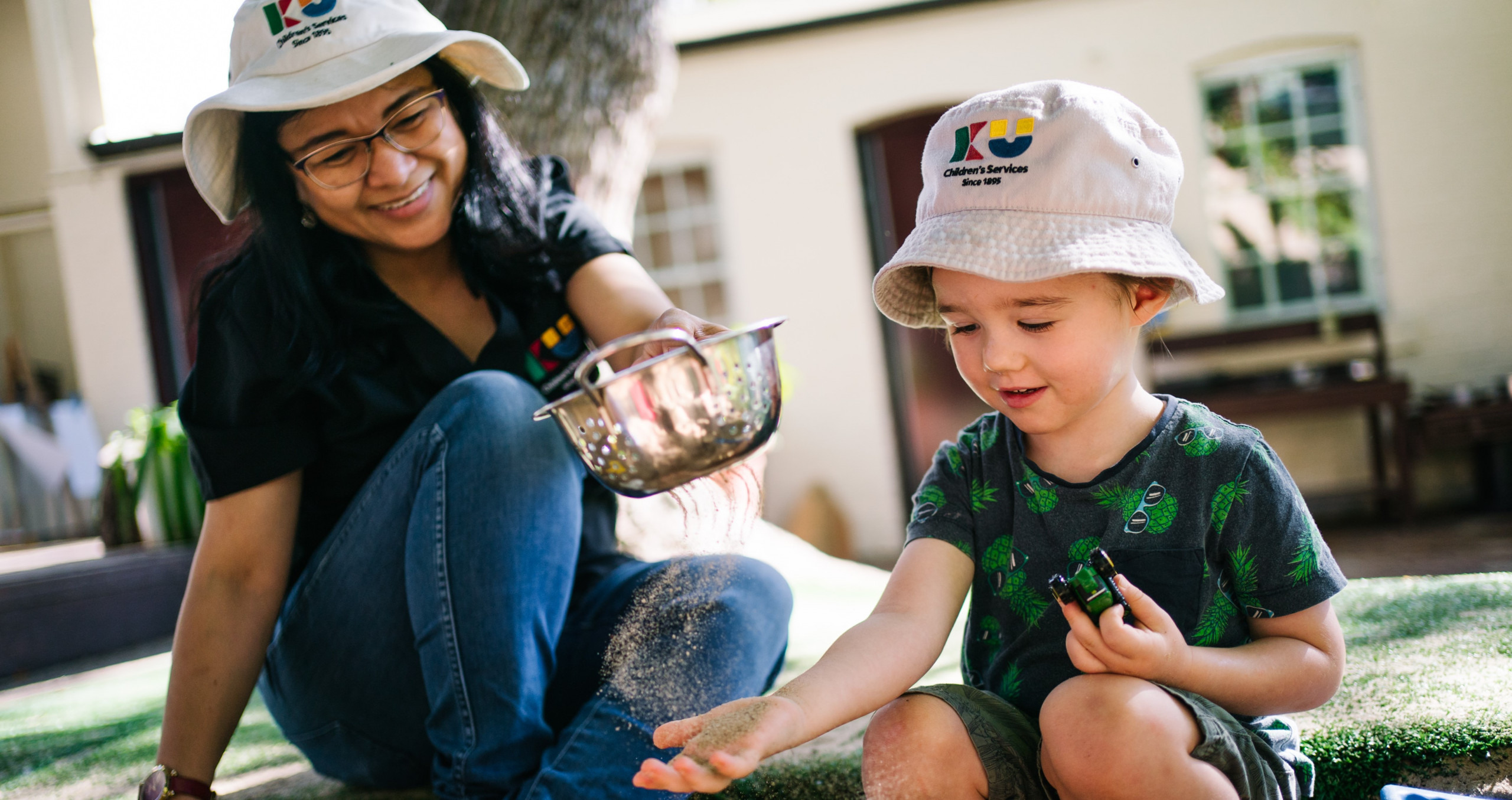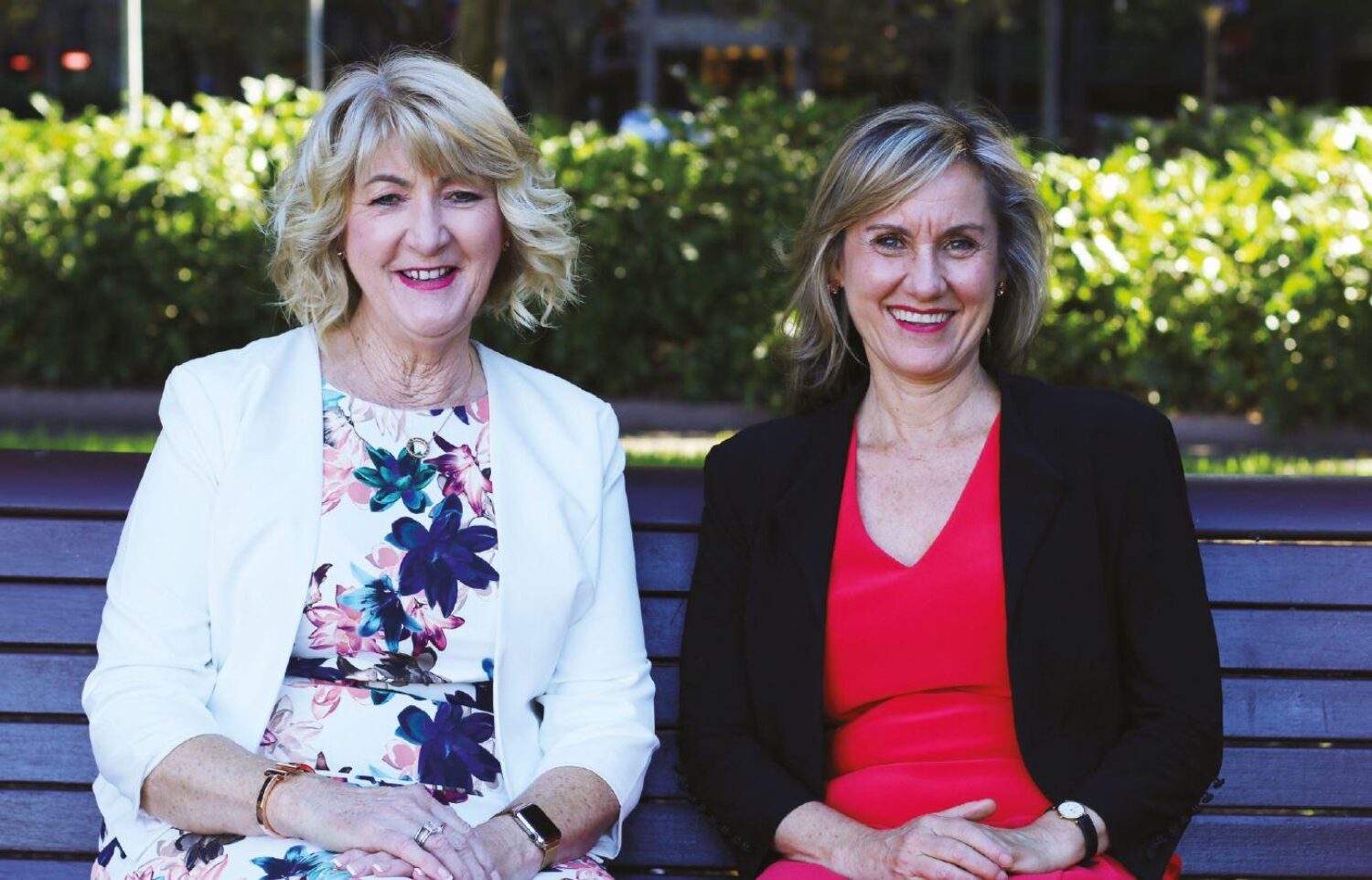Entering into 2020, KU was embarking on a year of extraordinary promise and opportunity. Having launched a new Strategic Plan to guide us through to 2022, and preparing to mark 125 years of operation, the organisation was well placed and looking to the future.
Even as so many of our communities began to emerge from the devastating impacts of bushfires, storms, and flood, we knew we could draw on KU’s history of resilience and our long-standing commitment to supporting children and families, to forge a path ahead.
Of course, the unprecedented scale of the COVID-19 pandemic drew the health, safety and wellbeing of our children, families and staff into stark focus, and shifted the priorities of the organisation. With the arrival of COVID-19, the impact on our operations was immediate and felt universally across the organisation.
From the outset, we would like to acknowledge the enormous health, psychological, social and economic toll the global pandemic has had, and will continue to have, on the community. We praise the commitment and resilience of our staff, who have continued to provide safe spaces and support for almost 11,000 children and families throughout KU. Thank you to each of you.
In the early days and weeks of the pandemic, our Executive and Crisis Response Team would meet at least daily in an effort to process and implement the enormous volume of information from Governments and the media. Like all of us, the authorities were learning as they went, so often there was a lag between announcements regarding public policy and funding, and the operational details required to implement those at an organisational or service level. KU’s business continuity systems proved crucial, as did the crisis response processes that have been developed and tested over the past several years. They provided a framework within which decisions could be taken and enacted quickly and enabled us to adapt and respond in real time as impacts of the pandemic continued to unfold.
Most KU services were categorised as ‘essential services’ and required to continue operating, however the nature of service delivery needed to change dramatically. At a service level, staff had to rethink how they could stay connected with and continue supporting the education of children at home; from our youngest babies to those preschoolers in their final year before transitioning to primary school. The inspirational creativity and innovation of the teaching staff saw some centres create learning and activity packs that we sent to children at home. The importance of technology as an enabler was increasingly evident. Services relied on Storypark and other digital platforms to share the educational program with children and communicate with families. Some arranged live and pre-recorded video sessions involving songs, stories and activities designed to bridge the gap between home and KU, and to provide content for children to access safely online. Other services arranged ‘drive by’ days so families could bring children past their centre to see familiar educators waving, and sharing signs and messages with children, from the footpath.
Feedback from families was overwhelmingly positive. Enrolments in services and family engagement remained very high throughout 2020, even during periods when physical attendance rates were extremely low, and we retained an exceptionally high Net Promoter Score (+76.4).
The closure of Australian borders significantly impacted migration, and in turn saw the temporary closure of childcare services provided by KU as part of the Adult Migrant English Program (AMEP). Similarly, the ‘stay at home’ instructions issued by most Australian employers saw operations suspended or scaled down in some work-based services operated on behalf of corporate clients.
KU’s own Central Office, and other offices in NSW, Victoria and Queensland were also closed. With all staff being supported to work remotely, large scale logistical arrangements were mobilised to relocate IT and office furniture into people’s homes.
Reflecting a year on, we must not forget what a scary time the onset of the pandemic was for everyone. Yet our staff demonstrated a level of resilience perhaps unprecedented in our organisation’s history. Whether they were required to venture out into a global pandemic each day and serve as ‘front line’ educators, or adjust to the unexpected complexity of supporting services and keeping KU running from home, either in complete isolation or whilst juggling the needs of their own families, staff did so with great fortitude.

The safety and wellbeing our of staff is always a priority for KU, and no more so than during 2020. We stepped up support mechanisms for staff, using technology to ensure the connection to colleagues and teams remained strong. KU takes our role as an employer very seriously, and recognises that our staff, and the relationships they develop with families, are at the heart of KU. From the outset we took the decision to do everything possible to protect jobs. With the assistance of the Australian Government’s JobKeeper funding, KU was able to provide job security for our 2,200 staff, keep our centres open and continue serving the community.
KU’s revenue streams shifted significantly as JobKeeper and a complex range of State and Commonwealth COVID-19 funding took the place of fee income from parents. As was both our priority and obligation, KU directed funding towards eliminating or heavily discounting fees for families, maintaining employment of staff and ensuring services and families in the most vulnerable situations were supported.
The additional Government support provided to centres in areas of significant disadvantage, meant that KU’s usual level of Social Impact investment in subsidising the operation of those services was not required. KU continued to deliver on our commitment to invest in social impact activities in other areas, such as our commitment to reconciliation.
Overall, KU operations in 2020 returned an unusually high surplus of $7,648,697. As JobKeeper and COVID-19 specific funding ceases, we recognise that for many families the financial impacts of the pandemic are still being felt. Accordingly, KU has reinvested the unexpected surplus generated in 2020 into maintaining fee affordability for families. This has ensured that we are passing little or no annual fee increases to families in 2021 wherever possible.
We could not be prouder of KU’s responsiveness and performance in the face of the pandemic, which was nothing short of extraordinary.
Perhaps equally extraordinary is the progress we were still able to make on our Strategic Plan. KU’s new Strategic Plan, developed pre-pandemic, determined the direction and priorities for the organisation over the three years 2020 to 2022. Focussing on four key areas; Educational Excellence, Thriving Workforce, Scalable Sustainability, and Social Impact, the Plan seeks to leverage KU’s existing strengths, and drive the organisation forward into the future.
In the 2020 financial year, KU achieved a number of key strategic plan objectives and operational outcomes.
The sector-leading quality of our services continues to be reflected in KU’s National Quality Standards results. Whilst all our services meet or exceed the standards, an impressive 86% are rated as Exceeding or have been awarded the coveted Excellent rating.
KU’s deep and ongoing commitment to the staff who make these achievements possible was also recognised by being named Employer of Choice by the Australian Business Awards. Impressively, this is our fifth consecutive year achieving this honour, and a testament to both the culture of, and investment in, our teams.
The reach and impact of KU continued to grow as we opened the doors, mid-pandemic, of KU Ashmont Preschool and Family Centre in Wagga Wagga NSW. Planning and construction commenced on our four new sites in Victoria, three of which are wholly owned by KU, and will incorporate long day care, integrated kindergarten, early intervention and NDIS services.
Sadly, we farewelled both KU Centennial Parklands and KU Revesby at the end of 2020 as very long-term leasing arrangements came to an end.
KU’s undeniable commitment to child safety, and the journey towards reconciliation with our First Nations Peoples, remained areas of strong focus in 2020.
Following the release of the findings of the Royal Commission into Institutional Responses to Child Sexual Abuse, the Governments at both State and Commonwealth levels have been responding to issues
of child safety, including the creation of a National Redress Scheme. In this context, all organisations entrusted with the care of children are increasing their focus on the issue. For KU, a long-time sector leader in the area of child safety and wellbeing, this has provided an opportunity to further refine and extend our systems, processes and transparency.
The journey towards reconciliation is based on continual listening to, and learning from, Aboriginal and Torres Strait Islander peoples. Since launching KU’s first Reconciliation Action Plan (RAP) in 2016, our understanding of how an organisation like KU should approach genuine reconciliation has continued to evolve. In consultation with Reconciliation Australia, 2020 saw us move away from the traditional RAP process and instead embrace a deeper commitment to reconciliation. As part of this process, KU established an Aboriginal and Torres Strait Islander Advisory Group, an independent group of highly respected Aboriginal people who provide cultural advice and guidance to KU on a range of issues as we continue our journey.
Whilst we were able to achieve so much, we also recognised that some of our plans for 2020 needed to change. Most notably, we decided to postpone the widespread celebrations we had planned to commemorate our 125th anniversary. A key part of
such a milestone is being able to engage with the many people who have shared KU’s journey; current and past children and families, staff, members and life members, and our business and community partners. This simply wasn’t going to be possible in 2020, however we look forward to marking 125 years of social impact through early education, in 2021.
2020 was unprecedented in so many ways, however KU’s core values continued to underpin our response and operations, and ensured we remained focussed on our strategic priorities. As we look to the future and consider how we will navigate a, hopefully, post-pandemic ‘new normal’, it is clear we will continue to leverage our strengths, use the learnings from the past year to drive innovation, and continue to grow the impact and reach of our work with children and families.
Finally, this year represents the final Chair and CEO’s Report to be presented by Laura Hartley as Chair, having served a full nine-year term on KU’s Board of Directors. We both feel that the relationship between CEO and Chair is critical to the success of an organisation and are incredibly proud of what we have been able to achieve during the past four years of joint leadership of KU. Whilst we will be sad to farewell Laura from the Board when she retires at the 2021 Annual General Meeting, we are incredibly grateful for her significant contribution to KU and the strong and lasting legacy she leaves. We are confident she will remain connected to the KU family for many years to come.

